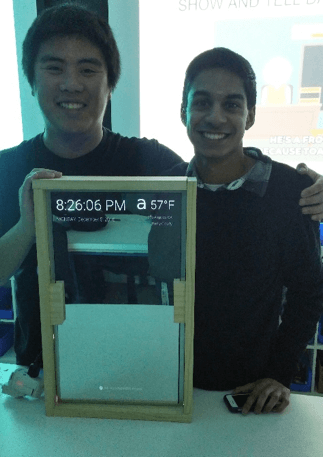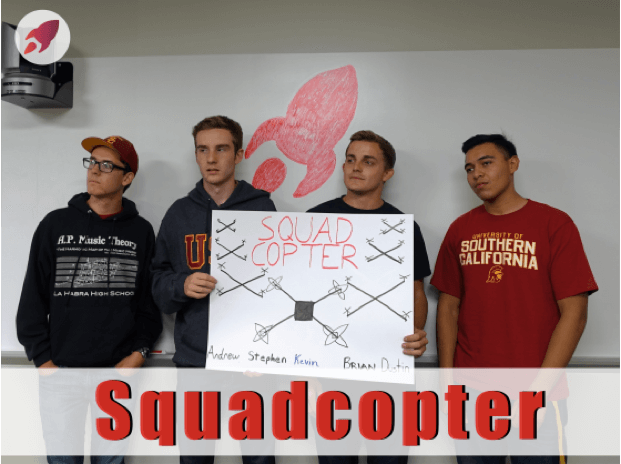By Yutong Gu
Why did you get into Electrical Engineering?
If you were to ask any of the professors in the EE department this question, you might hear fond memories of taking apart electronics, putting pieces together, and probably quite a few electrical shocks and burns in the process.
Although today they are trained engineers, many of our professors started out as electronic hobbyists. Starting in the 80s, a lot of electrical equipment suddenly became easily accessible to regular people. There were even an abundance of kits to help people who had an interest in electronics as a hobby. A whole generation of future engineers grew up with the opportunity to creatively play and explore.
One of my professors at USC, Allan Weber, describes what it was like growing up around this time. “The best part about being a hobbyist was that you could design and build something that was actually better than anything you could buy. Commercial products were built with the same components that hobbyists were using so you could look at commercial products and say ‘I think I can improve on that.'”
Unfortunately, this golden era of hobbying didn’t last long. Electronics became simultaneously cheaper, and so complicated that they were hard for the average hobbyist to make. For a while, it simply didn’t make sense for people to be as creative with electronic devices as they had been in the past. “The situation was described perfectly in an editorial from IEEE Spectrum way back in 1990.” Said Professor Weber. Soon enough, the makers became the consumers.

Freshmen Jamin Chen and Nishir Shelat, whose project involved combining a monitor and a mirror to make a “smart mirror” that will give you the time and weather.
Fortunately, times are changing; with the introduction of microcontrollers (ie. the Arduino) and various electronic parts suppliers (ie, Sparkfun and Adafruit), things are starting to look good again for the aspiring hobbyist.
I decided to get into Electrical Engineering because I was fascinated with robotics. In high school, I participated in the FIRST Robotics Competition, a nation-wide program where high school teams build robots and compete against each other to complete complex tasks. What I did on the team actually had nothing to do with the robot though; I was in charge of fundraising! But as I watched our robot take shape, I became fascinated with the electronics and how electricity can be used to get a 50-pound piece of metal to move around with the gracefulness of a butterfly. Our team never once won first place, unfortunately, but it sparked enough interest in me to pursue an electrical engineering degree.
Since coming to USC, I’ve been introduced to so many things that I wish I had gotten involved with earlier. I sometimes wish I had traded in my Nintendo DS for an Arduino (but then I remember how fun Pokémon was and I take back my remorse). What gives me comfort is that I realize it’s not too late for me to get involved in electronics hobby-ing and learn more outside the classroom. I soon met other students that felt the same way and it inspired me to start a club on campus last semester to fill this void.

Squadcopter, comprised of juniors Brian Heinz and Stephen Fowler, and freshmen Kevin Hernandez and Andrew Szot. Their project was to build a customized quadcopter.
Enter Makers, USC’s first electronic development hub. The purpose of Makers is to provide a dedicated space for students to work together and build electronic projects outside of the classroom. It’s a place for electronic hobbyists to come together and build cool things or for curious minds to get started tinkering. It’s the first club of its kind at USC and it’s a step in the right direction for promoting hardware-related innovation on campus.
Just like the electronic hobbyists before us, it’s important to have the curiosity to pick something apart and the determination to learn how it works. What often stops people from becoming hobbyists is not having access to the expensive equipment used to build and test circuits. At Makers, we provide the curious and determined mind with the creative space for tinkering that frees them to develop new skills that can benefit them personally and professionally.
“The summer before sophomore year, I really got into designing and building wearable devices,” said sophomore Myrl Marmarelis. “I wanted to join a group that would let me experiment with different kinds of sensors and collaborate with others to build stuff. Makers turned out to be the perfect fit—my team was free to try out whatever whacky ideas we wanted. We envisioned a smart skateboard that would detect potential obstacles along its path and alert the user. The people in Makers are incredibly fun and I’ve made great friends.”
While it’s possible for one to learn everything they’ll need in engineering classes, it’s not nearly as fun as making something with a group of friends without having to worry about GPAs or making mistakes. This frees you to be more creative with your projects and see engineering in a new light — as not just a career but as a hobby as well. At the risk of sounding cliché, we all know that notion, “if you love what you do, you’ll never have to work a day in your life.” Well, it’s true, and if you ask one of your professors, they’ll tell you all about it.
Makers is currently looking for curious minds to join our club! We recently opened applications for the semester, and the deadline to apply is January 25th. If you think you’re someone who can benefit from the club, please apply HERE. If you wish to learn more about us and our members, please follow us on Facebook and Instagram @USCMakers.
Yutong Gu is a sophomore electrical engineering student at USC and Director of Membership for Makers. When he’s not building new devices, he loves exploring L.A. and trying new foods.
Published on January 20th, 2017
Last updated on April 6th, 2021


